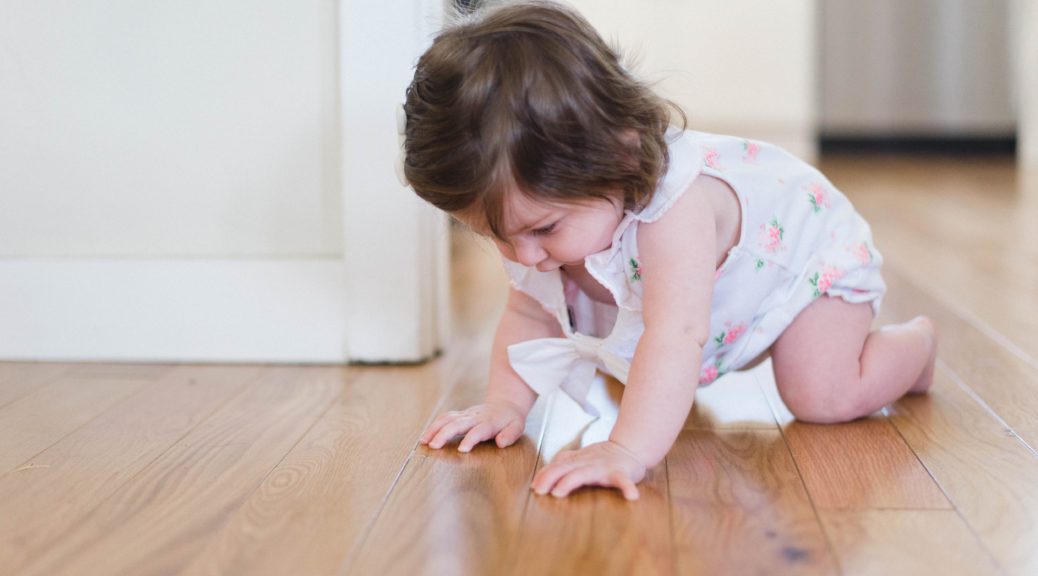
Separation anxiety at 8 months
The 8-month developmental leap occurs when the infants have reached some essential developmental milestones: they will sit up on their own or almost, eat solid foods, understand some words, and be able to express basic emotions (anger, sadness, joy). Although, undoubtedly, they still have a lot of learning to do.
Piaget’s theory of cognitive development suggests that infants experience different cognitive and emotional development stages as they grow and mature. In the sensorimotor stage, which occurs from birth to 2 years of age, infants experience the world through their senses and physical actions.
During this stage, infants develop the ability to understand the permanence of objects, which is that things exist even when they are not present. According to Piaget’s theory, the child is in the phase of secondary circular reactions, specifically in the second phase of this stage when they are 8 months old.
In the first stage, from 4 to 8 months, infants are still mainly passive observers of what is happening around them, and the first step in learning about everything around them is to discover and establish the limits of their own bodies: they suck their fingers, toes and so on.
In the second stage, from 8 to 12 months, infants begin to realize how their actions can affect objects and people in their environment. For example, they may shake a toy to hear its sound or repeat certain actions to get an adult’s attention. This is why, for example, they throw everything put within their reach on the floor repeatedly, babble, and try to get adults’ attention so they respond to them.
One of the things that also happens at this stage is when they establish their bodily limits, they learn simultaneously that they are a different element from their mother’s body. From this moment onwards, the famous “separation anxiety” occurs.
Separation anxiety is an emotional response that infants experience when separated from their primary caregivers, usually their mothers. During earlier stages of development, infants have established a strong bond with their primary caregiver and depend on them for security, protection, contact, food, and so on, to meet their basic needs.
Separation anxiety often shows up in crying, tantrums, difficulty sleeping, and anxiety when infants are separated from their caregivers. And here, separation means entering a different room or simply falling asleep and not knowing where their mother is.
This emotional response is natural and healthy, as it indicates that the infant has developed a bond with his or her caregiver. But it is also healthy and natural that this is challenging for the adults, as they may feel guilty or worried about leaving the infant alone because of their overreaction and because of comments from others that criticize the infant’s behavior and blame breastfeeding for this behavior. But let’s change the point of view and imagine ourselves in the child’s role.
What do they feel?
Infants feel anxious and worried when their primary caregiver disappears, fearing that he or she will never return. In addition, the infant cannot know when the primary caregiver will return and behaves the same if he/she “disappears” to go to the bathroom or if he/she goes to work for a few hours. This is because the object permanence mentioned above has not yet been developed.
What is object permanence?
Object permanence is an important concept in Jean Piaget’s theory of cognitive development. It refers to the child’s ability to understand that objects continue to exist even when they are not present in their immediate field of perception.
In the early stages of development, children believe that objects disappear entirely when they stop seeing them. However, as their cognitive capacity develops, they begin to understand that things do not disappear entirely and can reoccur at any time, and this milestone is achieved between 8-9 months.
But to achieve this milestone, they must overcome this stage and understand that even though there are changes around them and they sometimes fall asleep in one place and wake up in another, their primary caregiver disappears several times a day, and the world goes on. This ability to understand object permanence is crucial for developing mental skills such as memory and imagination.
In addition, at night, they tend to wake up more frequently at this stage, nervous and not knowing where they are or what has happened. And the way for them to calm down quickly is to ask for the breast and breastfeed. As with any increase in demand, if parents are not familiar with this stage, they will be worried: is the baby hungry? Does the baby need artificial formula milk, and is it normal that they wake up constantly? But this behavior indicates that the infant’s cognitive development is on track and a new milestone is being reached.
However, this means for the primary caregiver, usually the mother, that this is a very hard stage, in which she will sleep little and badly, as it is likely that the baby will not want to let go of the breast, to be sure that “their” breasts do not disappear from their side. And if parents are not informed, many fears and concerns arise.